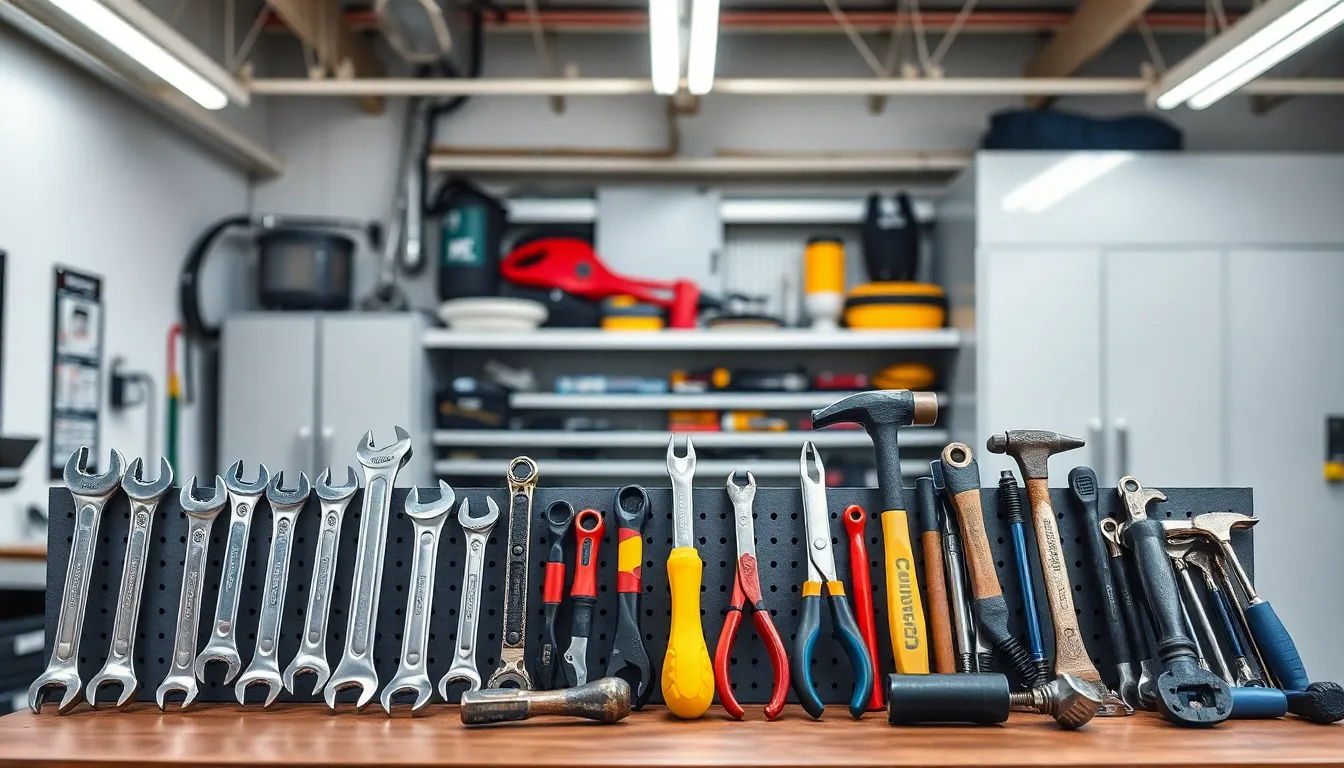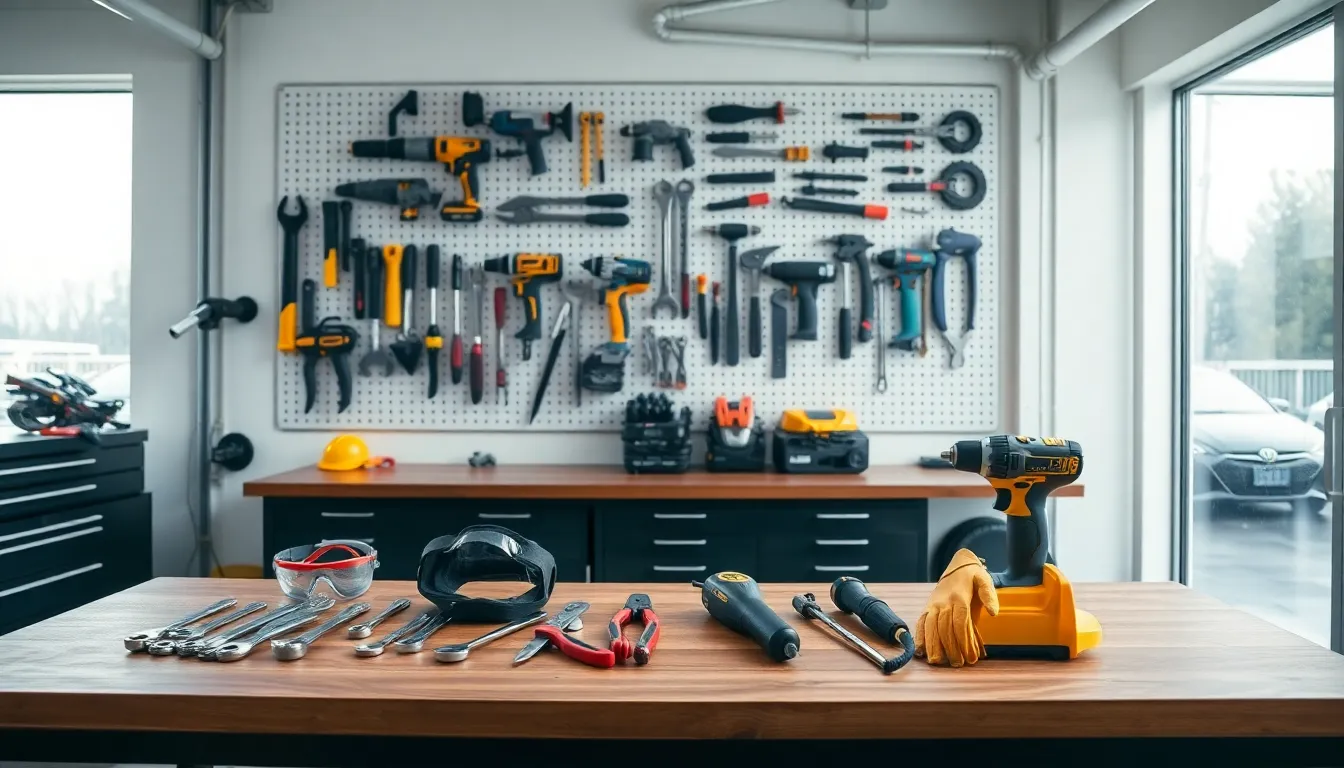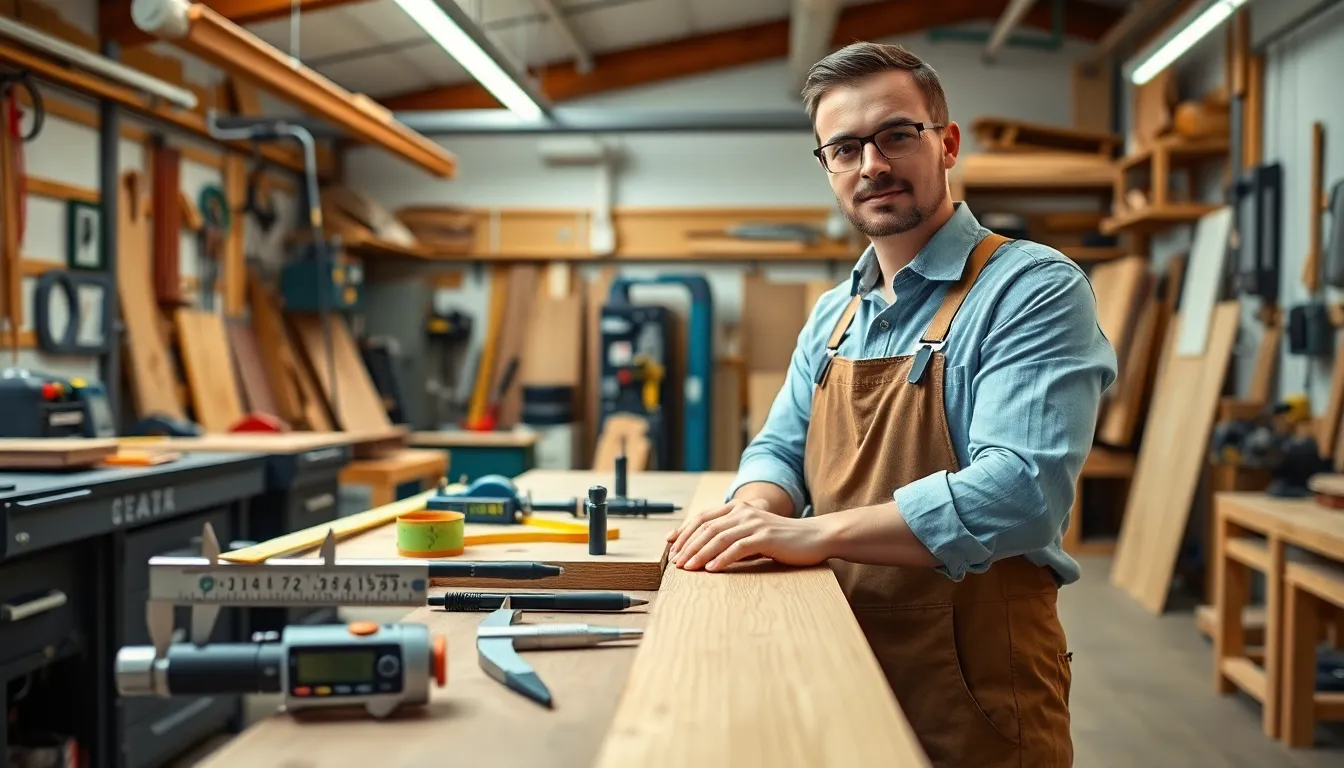Picture this: it’s a rainy Saturday afternoon, and your best friend’s car refuses to start. You could call a mechanic, but wouldn’t it be more fun to don your favorite coveralls and jump into the challenge yourself? Enter automobile workshop tools, the unsung heroes of every DIY enthusiast. A well-equipped workshop can turn an auto disaster into a triumphant rescue story. So, buckle up as we explore the essential tools, gadgets, and safety gear that transform a garage into a haven of automotive repair.
Table of Contents
ToggleEssential Hand Tools

To kick things off, let’s talk hand tools. These are the backbone of any automobile workshop. Without them, even the flashiest power tools would gather dust. Essential hand tools include wrenches, screwdrivers, pliers, and hammers.
Wrenches come in various types, such as adjustable, ratcheting, and socket versions, making them incredibly versatile. No mechanic or DIYer should be without a high-quality set. They are great for loosening and tightening bolts in almost every part of a car.
Next up, we have screwdrivers. Having both flat and Phillips head screwdrivers ensures that one can tackle any screw that comes their way, whether it’s for a dashboard component or under the hood.
Pliers are another must-have. Needle-nose pliers can reach those tricky spots that larger hands cannot, while locking pliers can help grip and remove stubborn components.
Finally, don’t underestimate the power of a good hammer. From tapping on a dent to driving in pins, a hammer is handy in more ways than one. Having a set that includes a rubber mallet and a claw hammer can really make a difference.
Power Tools for Efficient Repairs
Now, let’s elevate the game with power tools. These tools make tasks faster and often more enjoyable. Consider adding a power drill to your lineup if it’s not already there. This tool can easily drill holes or drive screws, transforming a half-day job into a matter of minutes.
Everyone also needs a good impact wrench. This tool packs a punch and can quickly loosen or tighten bolts, making tire changes a breeze.
A grinder can come in handy for cutting, grinding, and polishing metal parts. Grinders are essential, especially for those who often work on older vehicles requiring a bit of extra love.
Also, a sander works wonders for prepping surfaces before painting or finishing a project. With a few passes, it can smooth rough edges and save hours of hand sanding.
Diagnostic Tools and Equipment
In the world of automotive repair, diagnostics stand as the Sherlock Holmes of the process. With the right diagnostic tools, one can uncover problems that are otherwise hidden.
An OBD-II scanner is crucial for any workshop. By plugging into the vehicle’s computer system, it reads error codes, which can highlight issues ranging from minor annoyances to major failures.
Beyond scanners, a good multimeter proves invaluable. This tool measures voltage, current, and resistance. For any electrical issues, understanding the readings will lead to faster problem resolution.
Compression testers and cylinder leak-down testers are a must-have for more detailed inspections, especially when diagnosing engine health. They help uncover issues that can turn a smooth ride into a bumpy experience.
Safety Equipment and Gear
Safety should never take a backseat when working in an automobile workshop. Ensuring safety is just as important as having the right tools. Begin by investing in safety goggles. Eye protection is essential when using power tools or dealing with debris.
Besides, consider a good pair of gloves. They protect hands from sharp edges, hot surfaces, and chemical exposure. Select gloves suitable for the task at hand, whether it’s handling greasy parts or working with batteries.
A fire extinguisher is another critical piece of equipment. Regardless of how careful one may be, accidents happen. Being prepared can save not only one’s workshop but potentially a life.
Finally, a sturdy set of work boots will provide the necessary traction and protection. Slip-resistant soles can mean the difference between standing securely and taking a tumble.
Organizational Tools for a Professional Workspace
A clean and organized workspace can set the tone for any project. When the tools are well-organized, it’s much easier to focus on the task at hand.
Toolboxes and tool chests are essential. They come in all shapes and sizes, helping to keep everything from wrenches to screwdrivers tidy and within reach. Magnetic tool holders can also save wall space while keeping frequently used tools visible and accessible.
Implementing labeling systems is another smart move. Label drawers or containers to quickly find the right tool or part when time is of the essence. For the ultimate workspace, consider pegboards that can hold tools vertically: this approach maximizes storage and minimizes clutter.
Maintenance and Care of Workshop Tools
The longevity of workshop tools relies heavily on their maintenance. Regular care can ensure that they perform at peak efficiency. Start with cleaning: oil and grease can accumulate, leading to rust and wear. Wipe down tools after use and ensure they remain moisture-free.
Proper storage is equally crucial. Store tools in dry environments away from dampness, and consider using silica gel packs in toolboxes to combat humidity. A well-kept toolbox helps to keep tools like wrenches and drills functioning correctly.
Finally, don’t shy away from conducting regular checks on powered tools. Inspect cords and connections for wear and tear. Routinely maintaining tools both mechanically and aesthetically ensures that they last for years to come.


